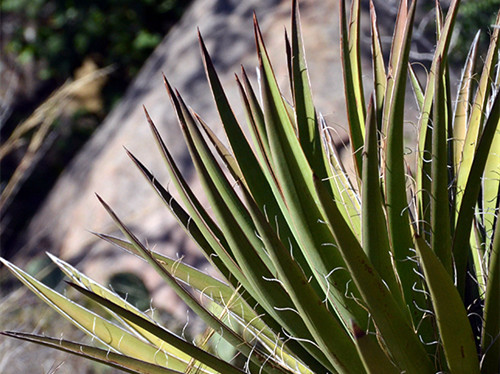If you’ve ever grown plants in an arid environment, you’ve probably heard of yucca schidigera, otherwise known as Spanish dagger or Mojave yucca, which is native to the southwest deserts of North America. Native Americans refer to the plant as the “tree of life” because of its protective qualities against drought and environmental stress. The yucca schidigera extract has many benefits for people, it is as a detoxifying agent and internal body cleanser. Herbalists recommend taking the plant’s extract orally to clear out toxins and detoxification may be done for a variety of reasons, from general health to preventing illness. Yucca extracts have been used as a foaming agent in beverages. It can also help your weight loss efforts and can be used medicinally for a variety of diseases, including arthritis and colitis. Moreover, yucca polyphenolic compounds, known as yuccaols, inhibit NFkB, an enzyme that is implicated in cancer. Surfactant sprays containing yucca extracts are great to remove odor for dogs and cats. Nowadays, the research of yucca extract in plants has been a popular topic.
Yucca schidigera is an excellent source of yuccaols, a phytonutrient that is known for its medicinal and aromatic properties. It is a versatile and useful supplement for a variety of plants. One of the benefits of using yucca extract for plants is the ability to provide the plants with the nutrients they need to grow. The compound can help plants grow and thrive in the harshest environments, from drought to UV exposure. Yucca Extract enhances plant moisture uptake, which means plants can use available water more efficiently. It also breaks down the surface tension of water molecules, which makes water available to plants.
Added to water, the extract helps the plants produce more nutrients than they could otherwise get on their own. Yucca extracts supporting with water and nutrient absorption and performs as a plant protection agent. we know water can beads up on a waxy surface, however, the natural saponins in yucca extracts depolarize the water molecule, permitting foliar sprays to spread out more evenly on the waxy leaf surface. The skinny film that is created covers a greater surface area on the leaf for higher and greater even absorption by the plant cells.

Yucca Schidigera
The polyphenols found in yucca have anti-inflammatory properties. Yucca Polyphenolic compounds also help plants respond to abiotic stresses and regulate their production of harmful compounds. Organic Yucca extracts are every so often added to concentrated nutrient formulas for plant dietary supplements when mixing with Radix sophorae extracts to compost teas and different microbial inoculants. Researchers at the University of California, Davis, and the University of Illinois, Chicago, have found numerous beneficial applications for Yucca polyphenols for plants. This plant extract acts as a plant protector, improving water and nutrient penetration. They also have an anti-inflammatory effect, so they are a useful addition to any plant health regimen.
In addition, yucca root extract contains complicated sugars, it is a secure carbon supply for plant-growth-promoting microorganisms in the root zone. Microorganisms bring many advantages to plants, such as the mineralization of natural matter, increased root increase and caused resistance to pests and disease. For example, yucca extracts are replacing copper sulfate in Europe to assist prevent fungal diseases such as apple scab.
Moreover, it spreads the water evenly across the root zone, increasing plant use of water. With more water at their disposal, plants are able to recover faster from drought stress and other conditions. Yucca spray flushing excess salts from plant roots. Nutrient salts have a tendency to construct up in the developing medium due to repeated wetting and drying of the fertilizer mixture. Over time, the salt accumulation makes it more difficult to take up water and the plant starts to go through salt stress for the plant. Yucca makes water “wetter” because its surfactant property approves the water to penetrate deeper into the soil and flush away greater of the gathered salts from the root zone. As a result, plants are capable to consume water more efficiently and get better more rapidly from the symptoms of drought. After continuous use, yucca will help stabilize soil pH, limit soil compaction, and increase the availability of essential trace factors to the roots. So, yucca extract is an excellent supplement for any vegetable garden and those who want to grow vegetables in a natural, organic way. These phytochemicals have been studied as biologically-active Phytochemicals in Food Analysis, a method used to assess the bioavailability, metabolism, and function of natural compounds in food.
- Dandelion Extract: What It Is, Benefits, Uses and Side Effect - April 23, 2024
- Is Berberine Extract Help For Weight Loss? - April 11, 2024
- Why Is Pysllium Husk Powder A Popular Meal Replacement Ingredient? - April 3, 2024



